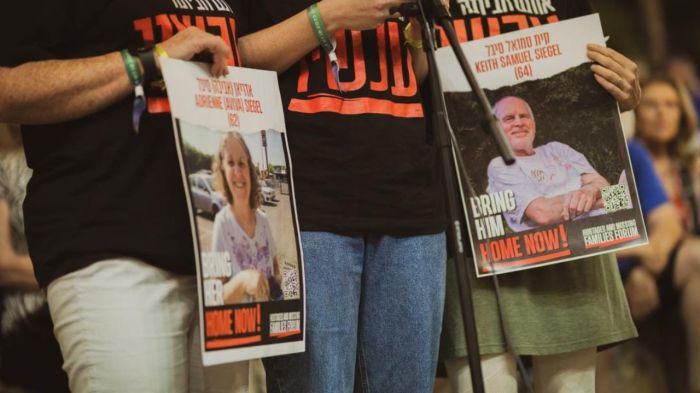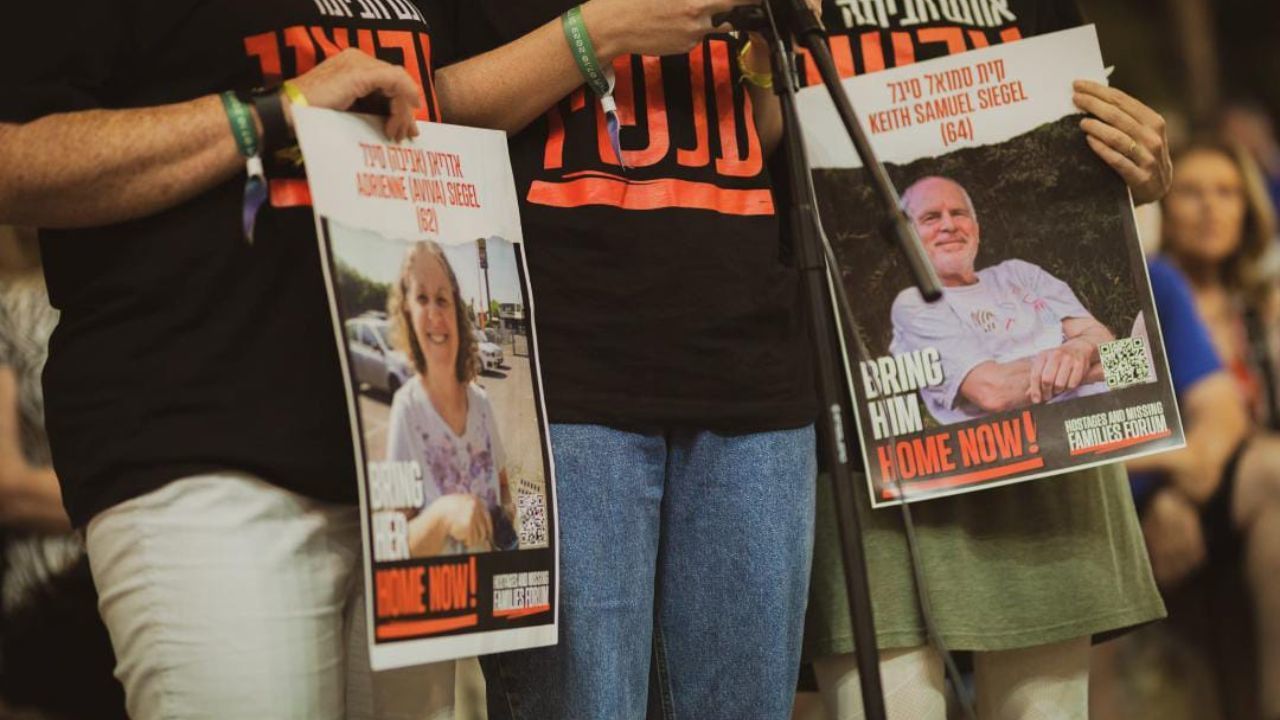
The handover of Israeli and Thai hostages last week in southern Gaza devolved into chaos when crowds of people surrounded the Hamas captives, a scene that prompted the Israeli prime minister to delay the release of Palestinian terrorists jailed by Israel.
Hamas released Israeli citizens Arbel Yehoud, Gadi Mozes and Agam Berger on Thursday, as well as Thai citizens Thenna Pongsak, Sathian Suwannakham, Sriaoun Watchara, Seathao Bannawat and Rumnao Surasak.
The chaotic release occurred as armed Hamas and Palestinian Islamic Jihad militants escorted the captives to hand them over to the Red Cross in the southern Gaza city of Khan Younis.
Hamas, the terror group that has controlled the Gaza Strip since 2007, has held the Israeli and Thai citizens prisoner for at least a year now following Hamas’ Oct. 7, 2023, attack in southern Israel that killed over 1,200 people, mostly civilians. Hamas agreed to release them as part of a ceasefire deal.
A crowd surrounded the hostages near the home of slain Hamas leader Yahya Sinwar, The New York Times reports. The hostages had to walk through the large mob rushing at them, with some chanting support for Hamas while others tried to take photos and videos of the captives with phones.
In the footage, 29-year-old Yehoud appears scared as the militants led her to the Red Cross convoy. Yehoud is one of the last few living female hostages, the NY Times noted.
While Israel released more than 100 Palestinian prisoners, including some convicted of attacks against Israel, on Thursday, it was not before Israeli Prime Minister Benjamin Netanyahu announced a delay in the release after the hectic hostage handover.
“I view with utmost severity the shocking scenes during the release of our hostages. This is additional proof of the inconceivable brutality of the Hamas terrorist organization,” Netanyahu declared in a Thursday statement.
“I demand that the mediators make certain that such terrible scenes do not recur, and guarantee the safety of our hostages,” Netanyahu added. “Whoever dares to harm our hostages will pay the price.”
The mediators — which includes Qatar, Egypt and the United States — conveyed a commitment to safe passage for the hostages scheduled for release as part of the next phase of the ceasefire deal, according to the Israeli prime minister’s office.
“Israel insists that the lessons be learned and that strict care be taken in the next phases regarding the safe return of our hostages,” Netanyahu said in a statement.
As part of the first phase of the ceasefire agreement, Hamas agreed to release 33 of the hostages in exchange for thousands of Palestinian prisoners.
Earlier last month, Hamas released four female Israel Defense Forces troops who worked as observers along the Israeli-Gaza border. The terror group abducted the female soldiers during its Oct. 7, 2023, invasion that sparked Israel’s military offensive in Gaza.
“There were periods when there was no food, when the IDF attacked near, and it was frightening. We supported one another, and we strengthened one another,” the former hostages told Israeli media.
Hamas held a release ceremony when it freed the female soldiers on Jan. 25, which the former captives recognized as an attempt to humiliate them. According to reports in Hebrew media, the girls told family members that they were determined to show strength and composure during the ceremony.
The Israeli soldiers endured 477 days in captivity, where they were deprived of food and often forced to go for months without showering. Some of the girls were held prisoner in civilian apartments, while others spent their time as hostages in tunnels.
Their captors tortured them psychologically, according to the former hostages, who reported that they also met “very senior Hamas people” during their captivity.
A medical source involved in receiving the soldiers said, “The girls exuded resilience on stage in front of the terrorists in Gaza. This is an inner strength, that even if it turns out that the terrorists gave them drugs, the resilience they showed cannot be explained in this way.”
Samantha Kamman is a reporter for The Christian Post. She can be reached at: samantha.kamman@christianpost.com. Follow her on Twitter: @Samantha_Kamman








